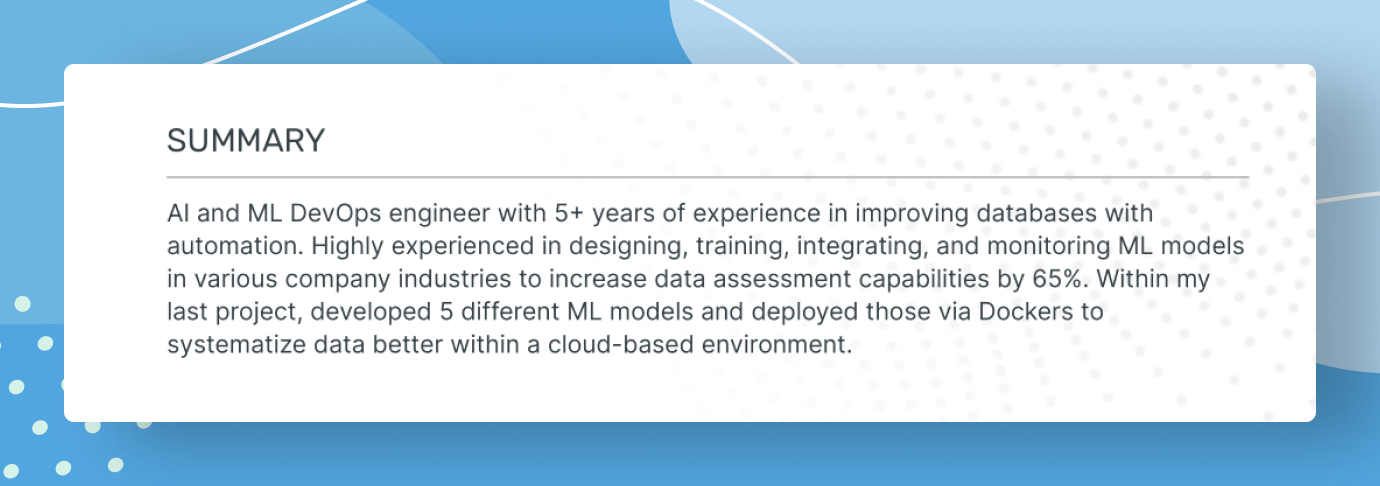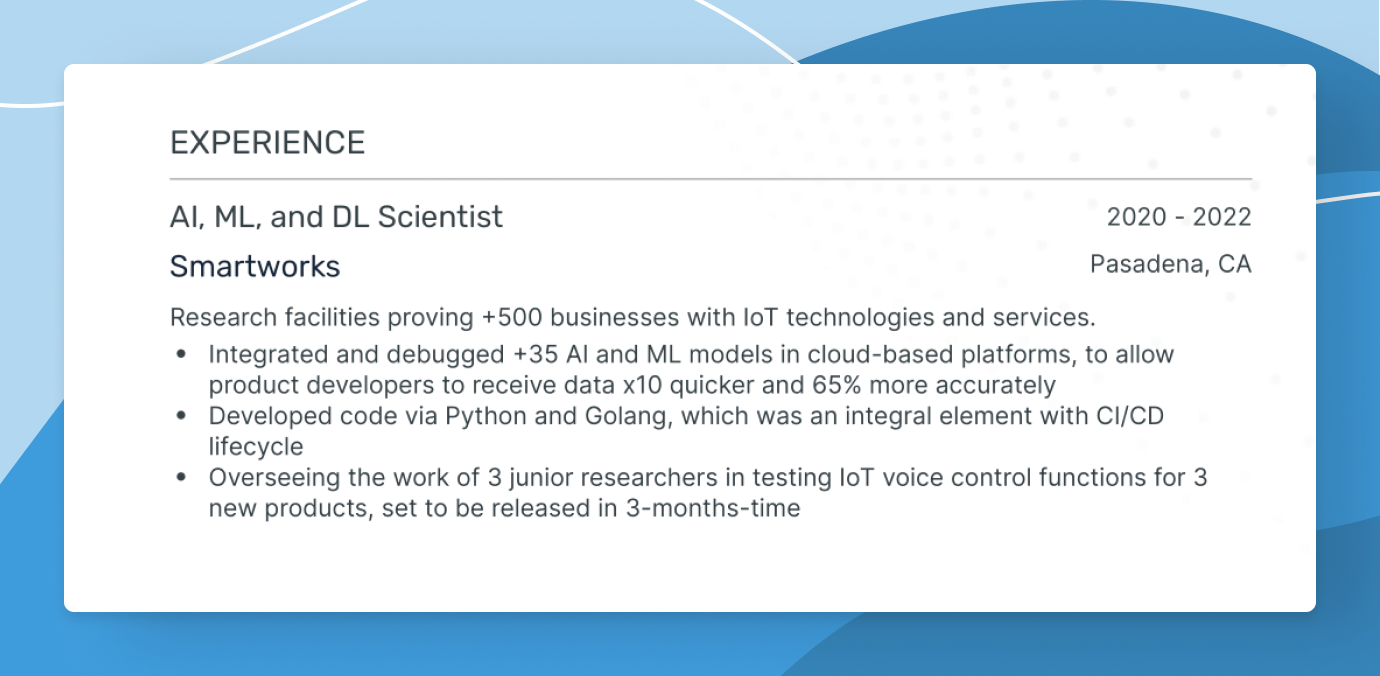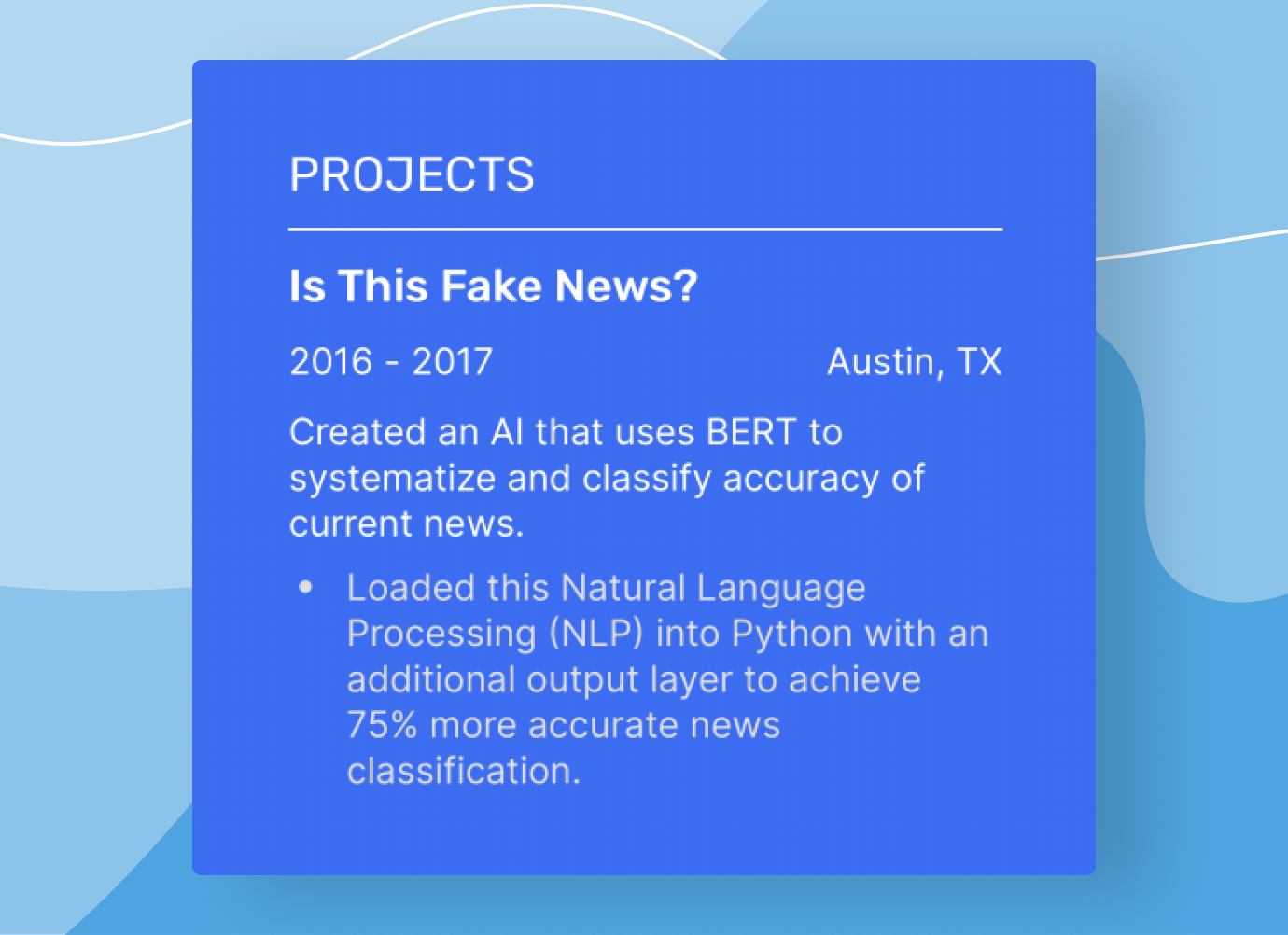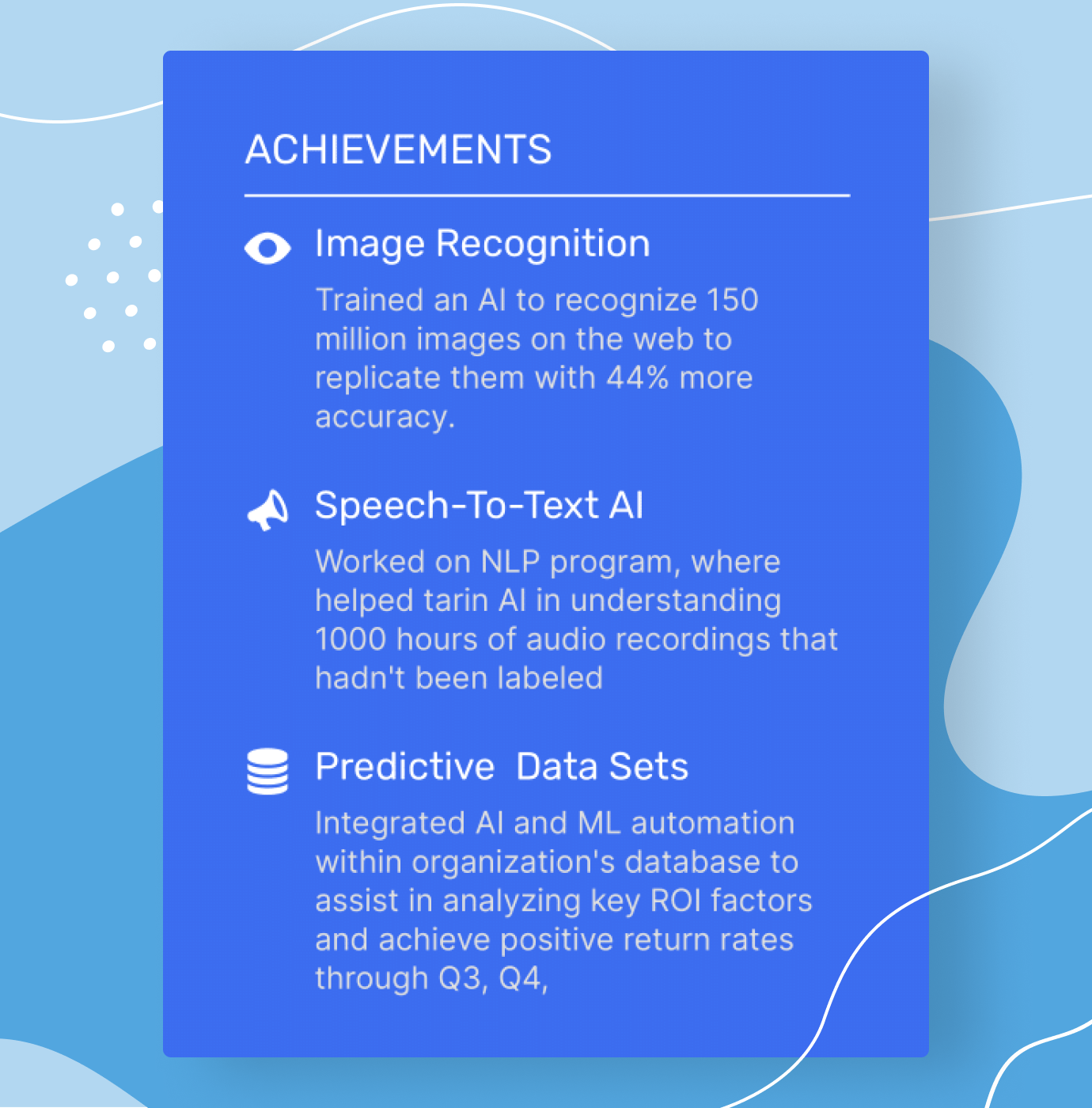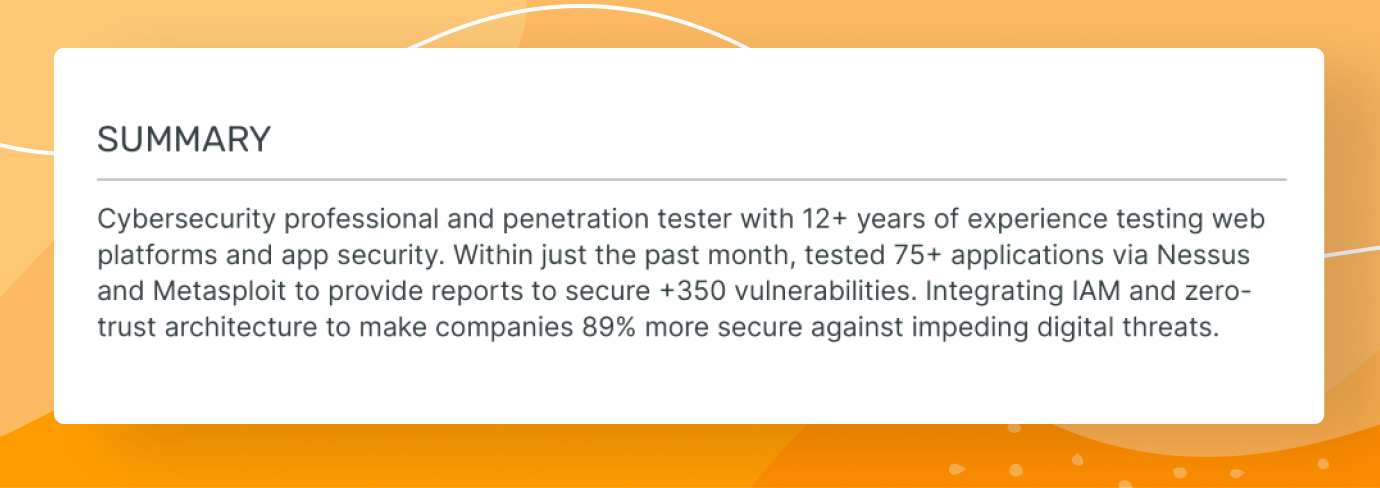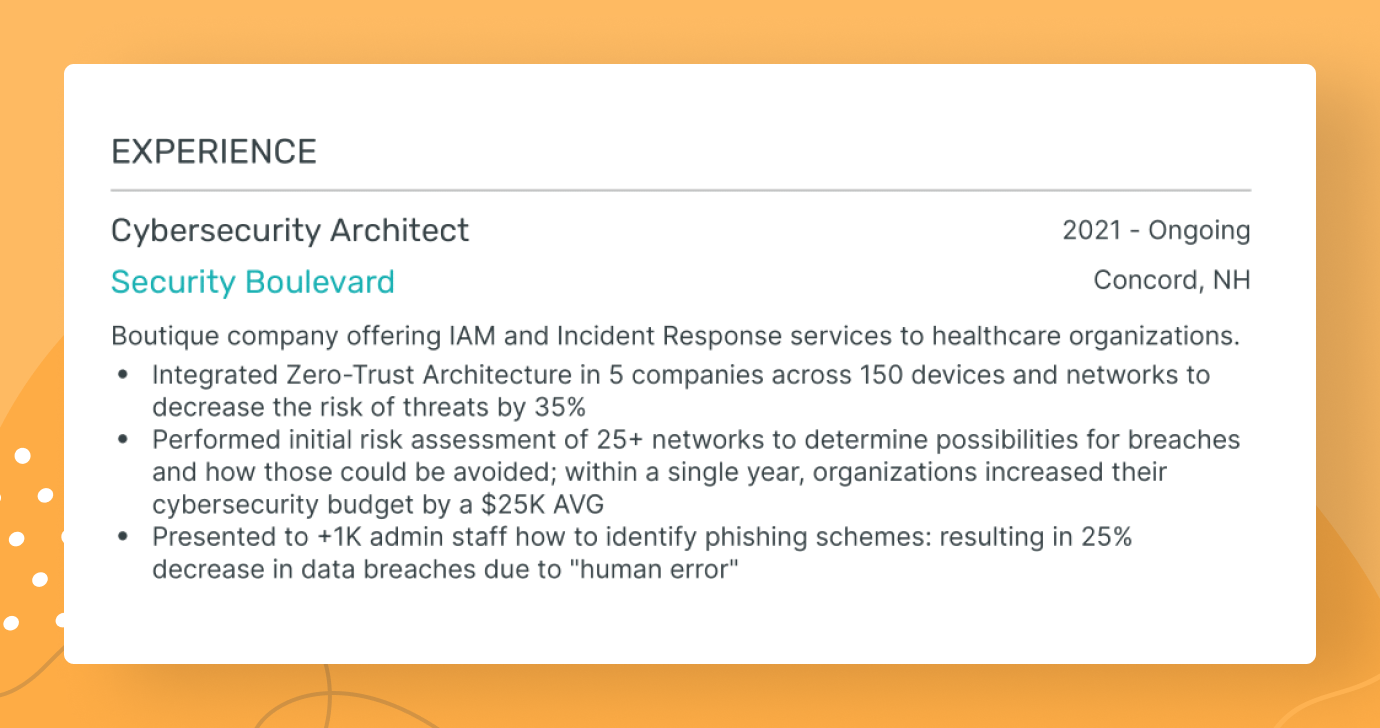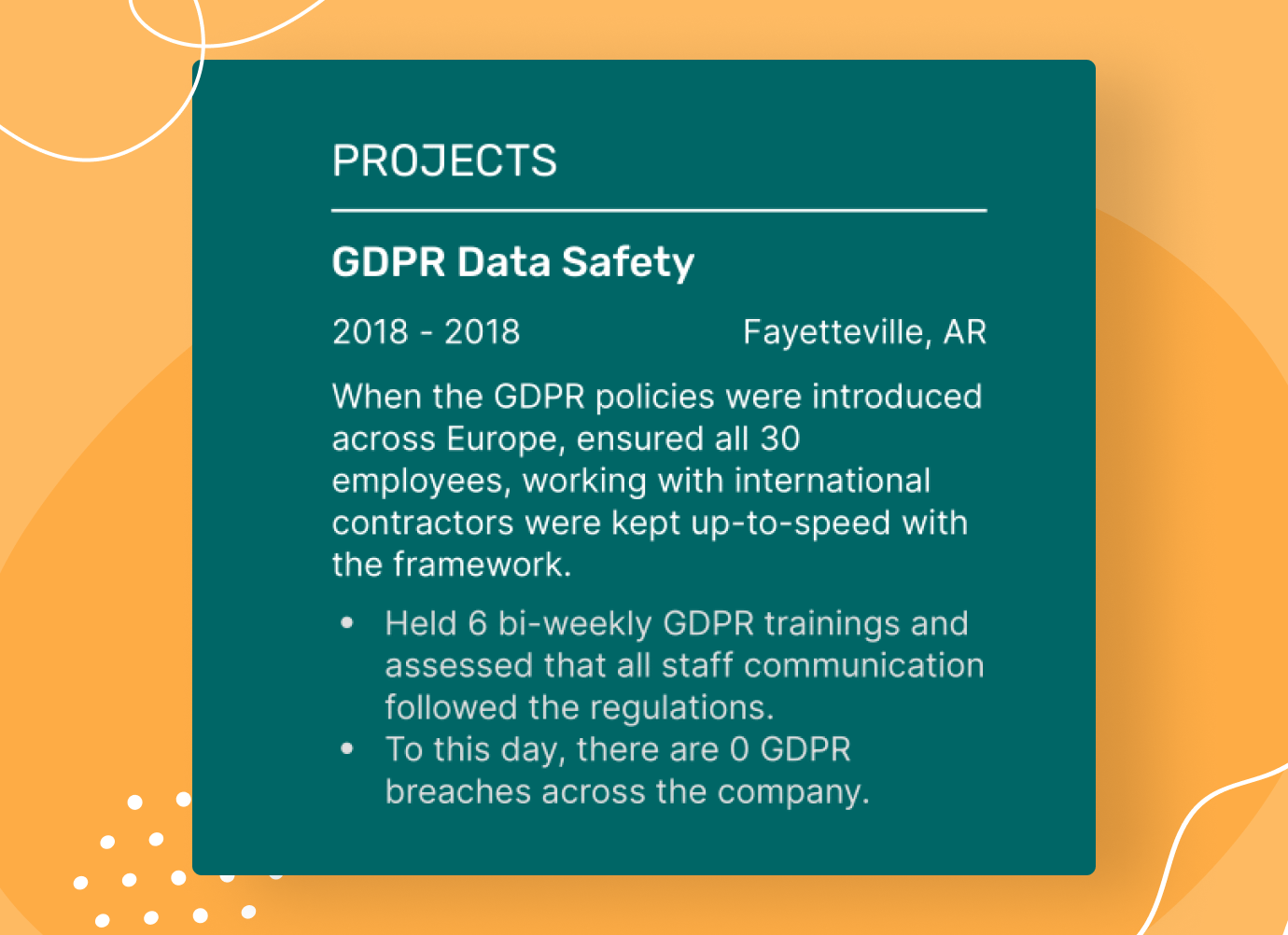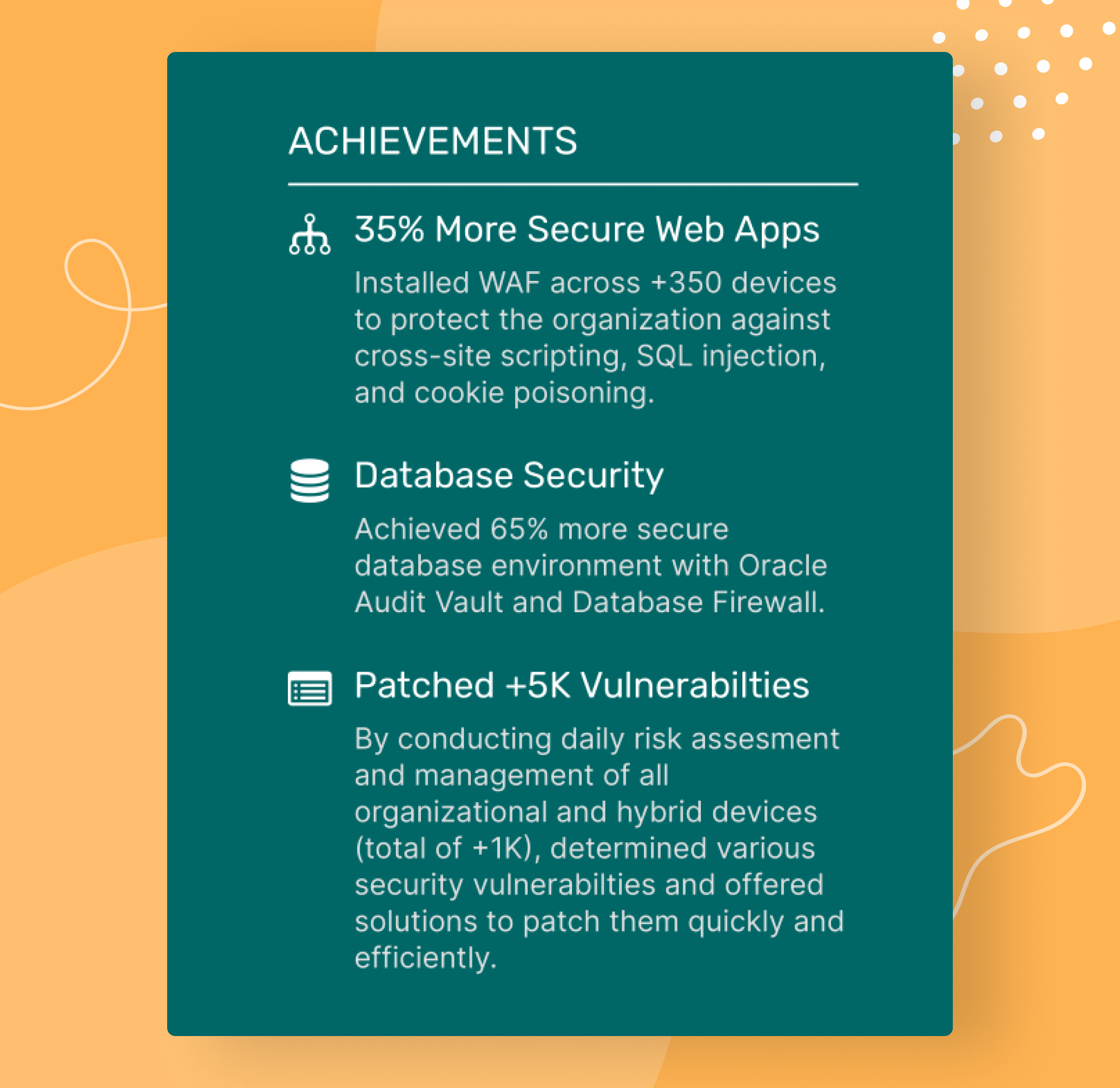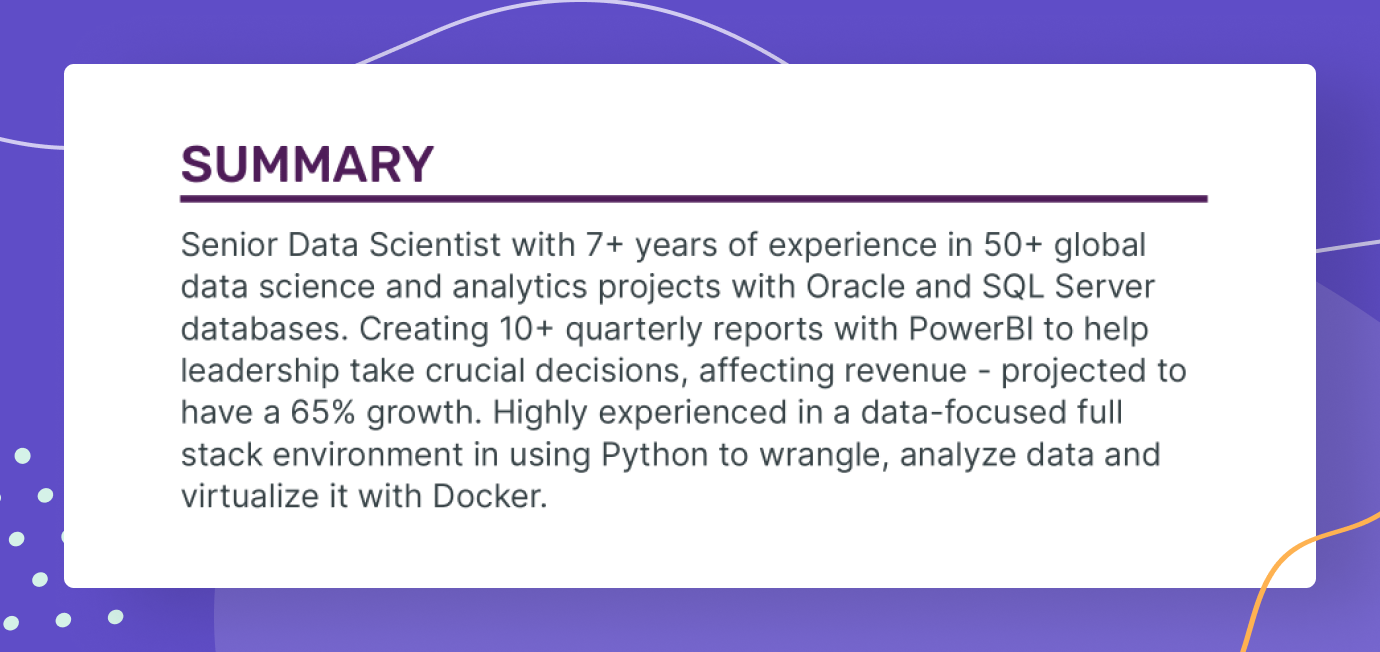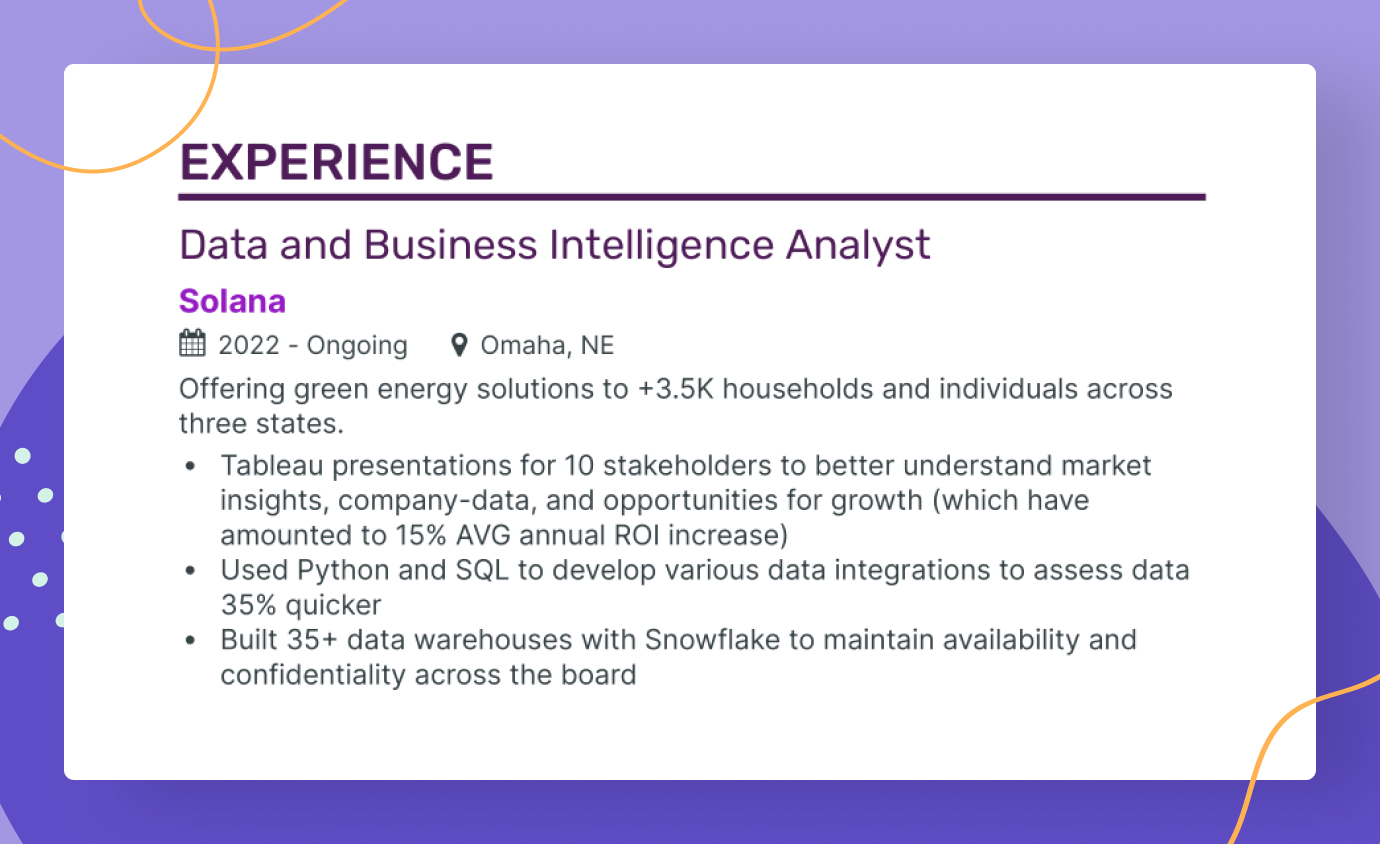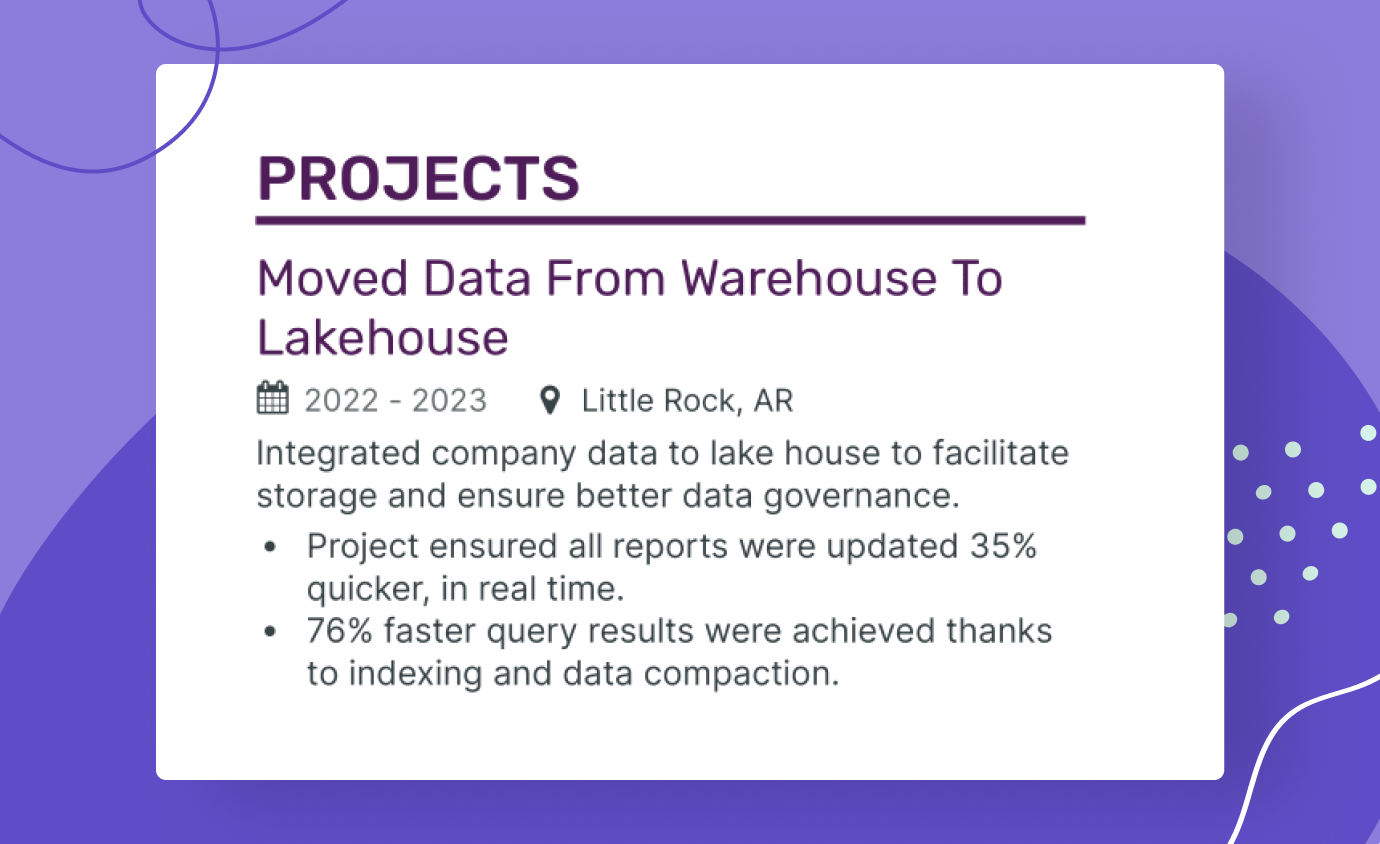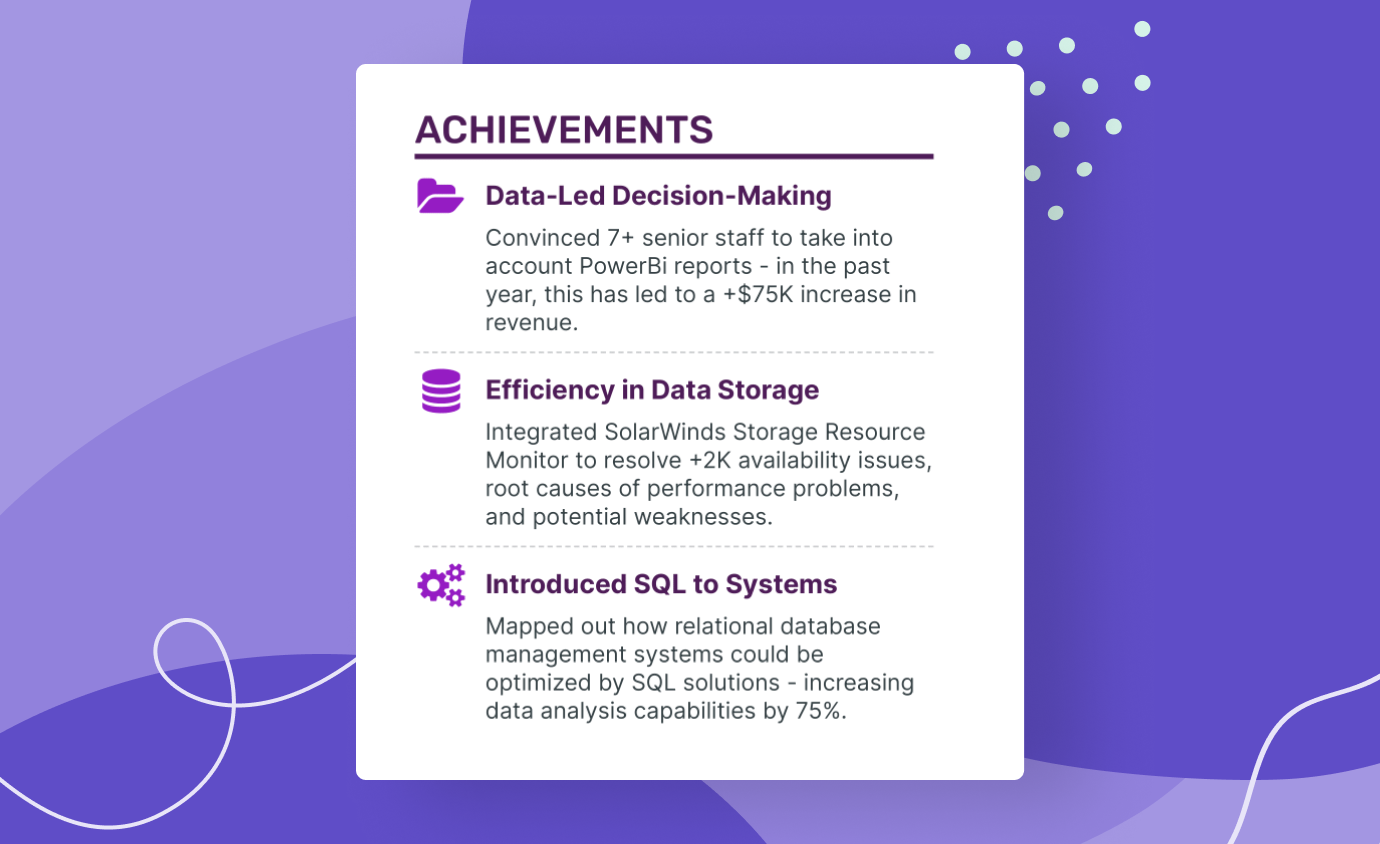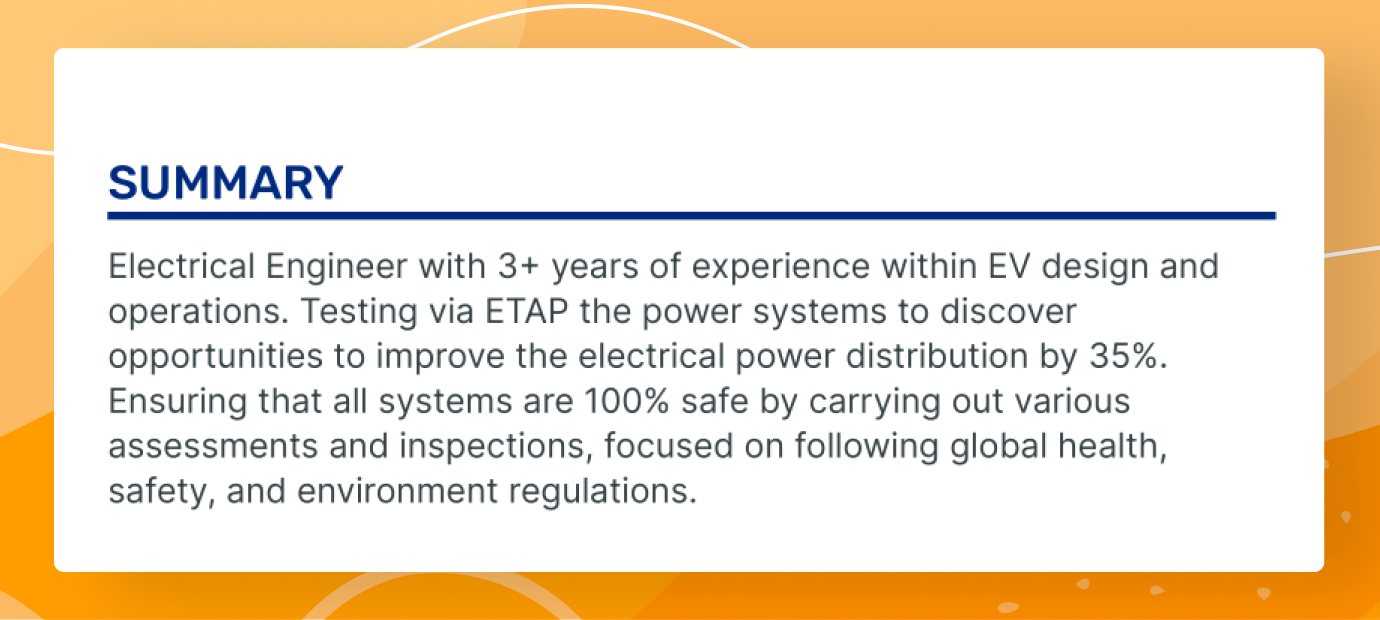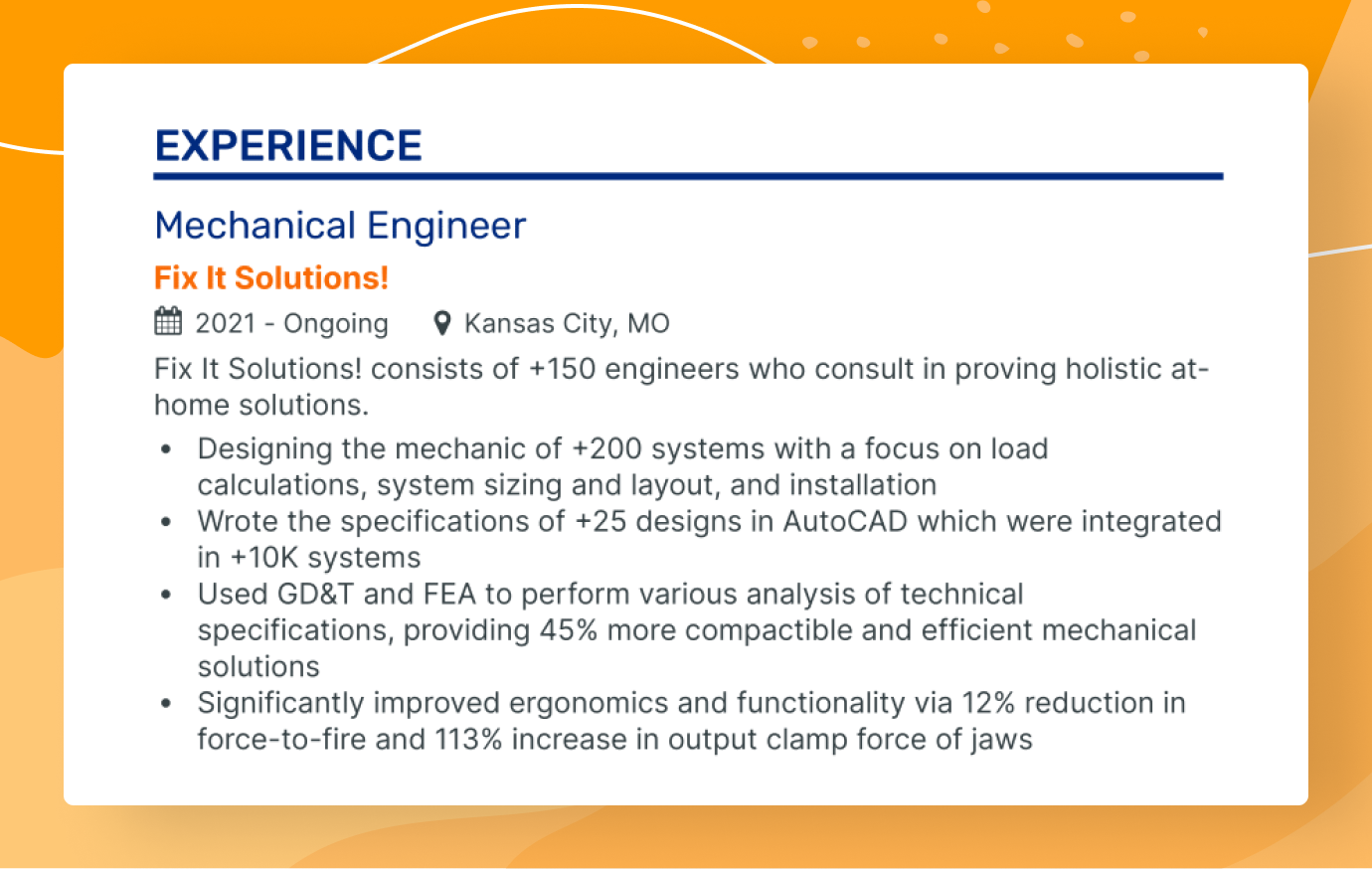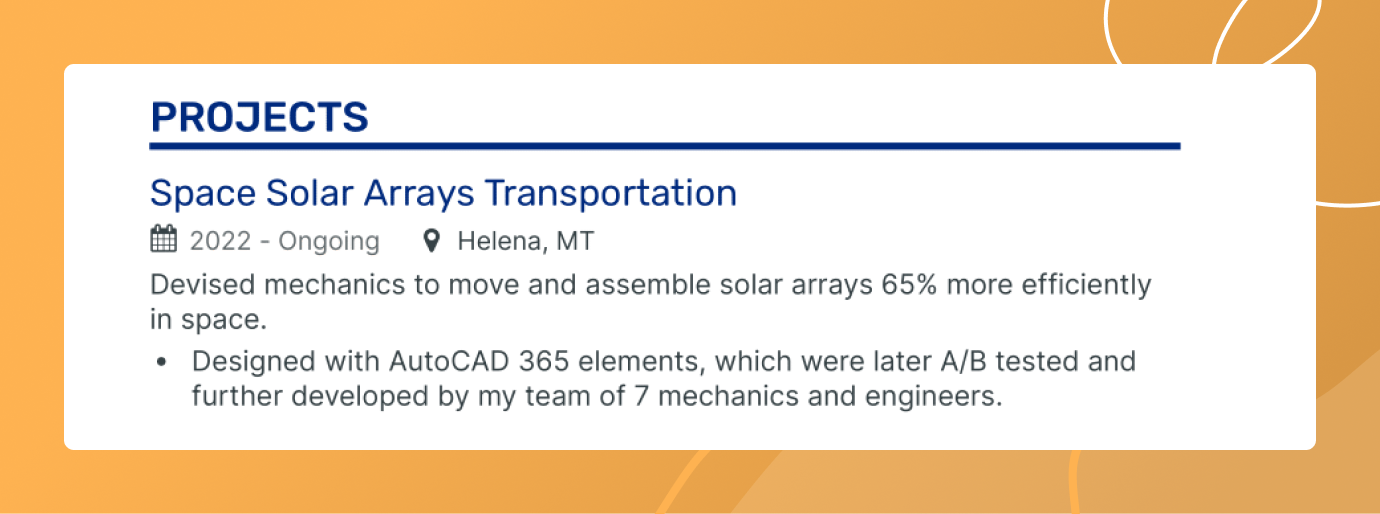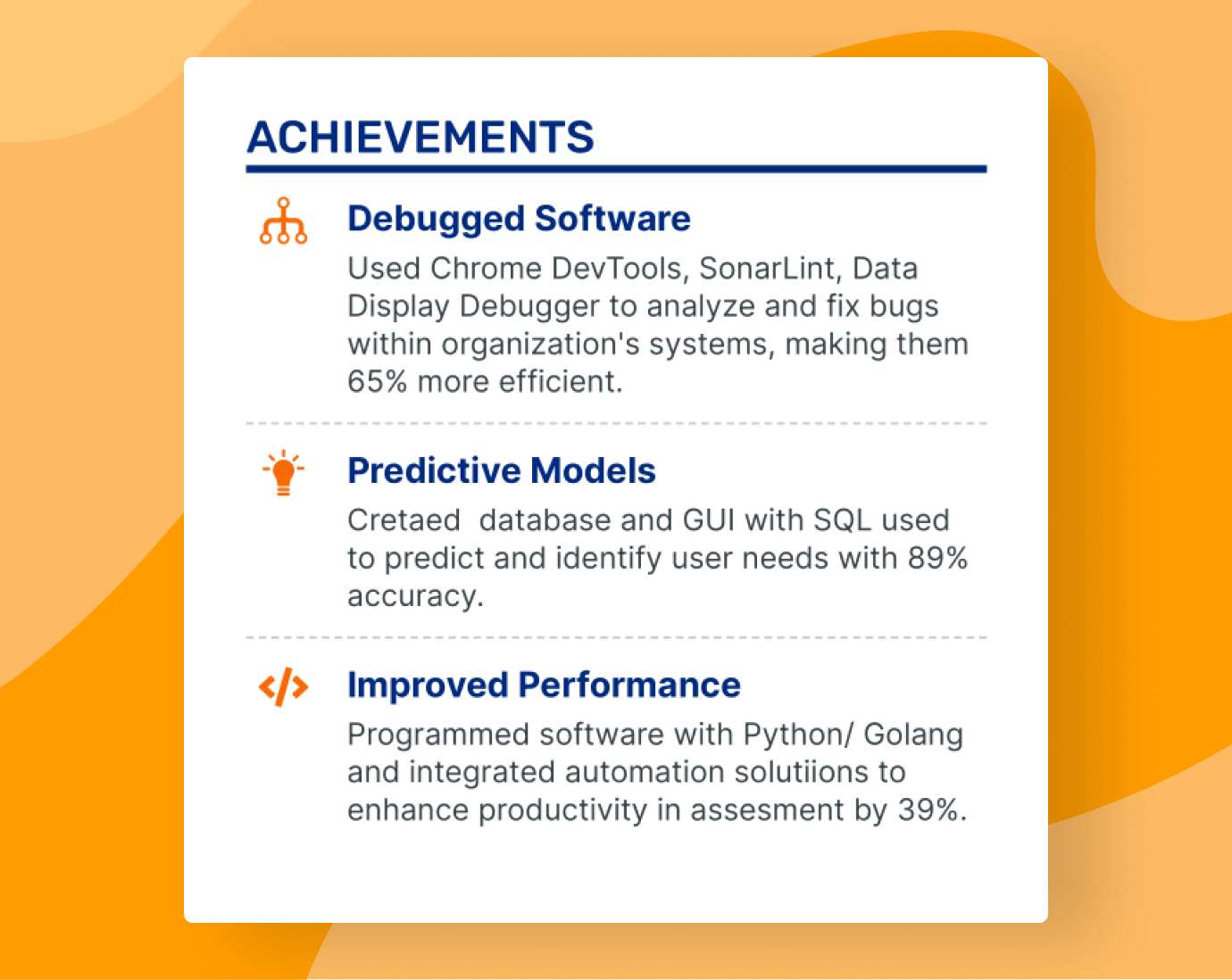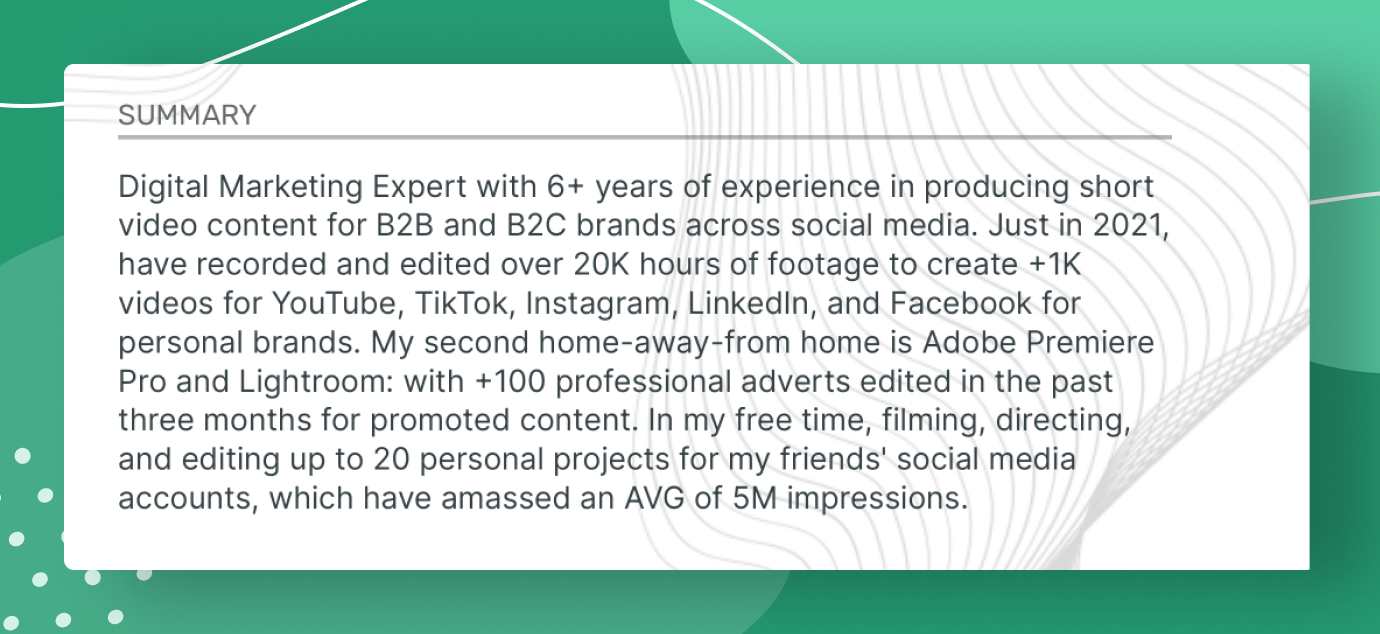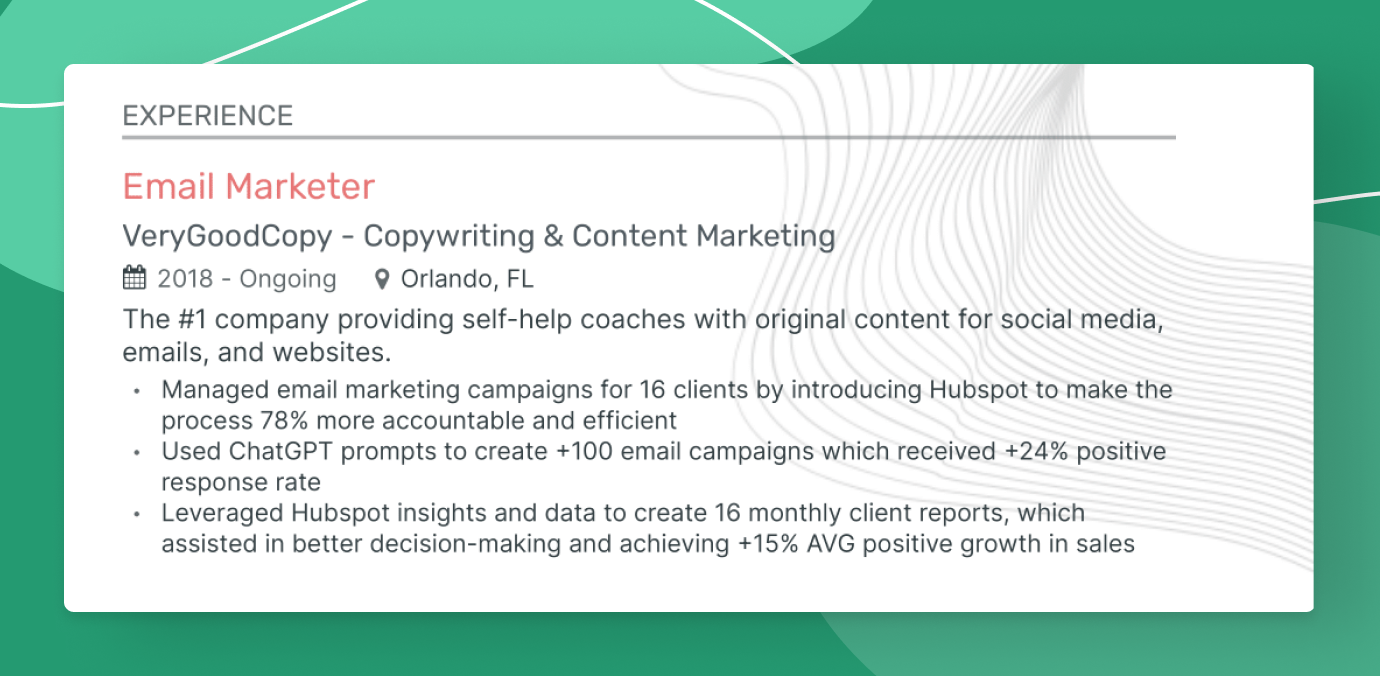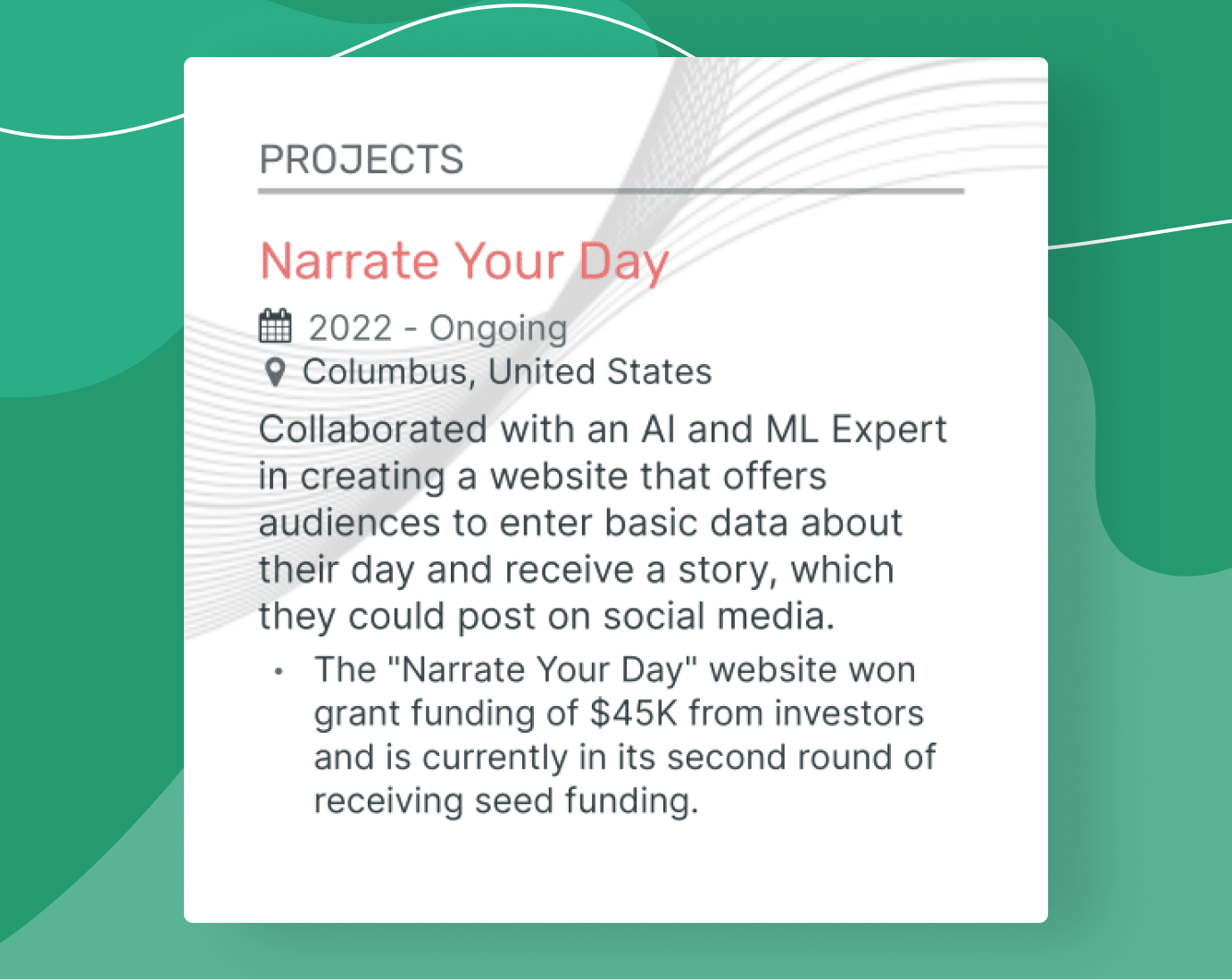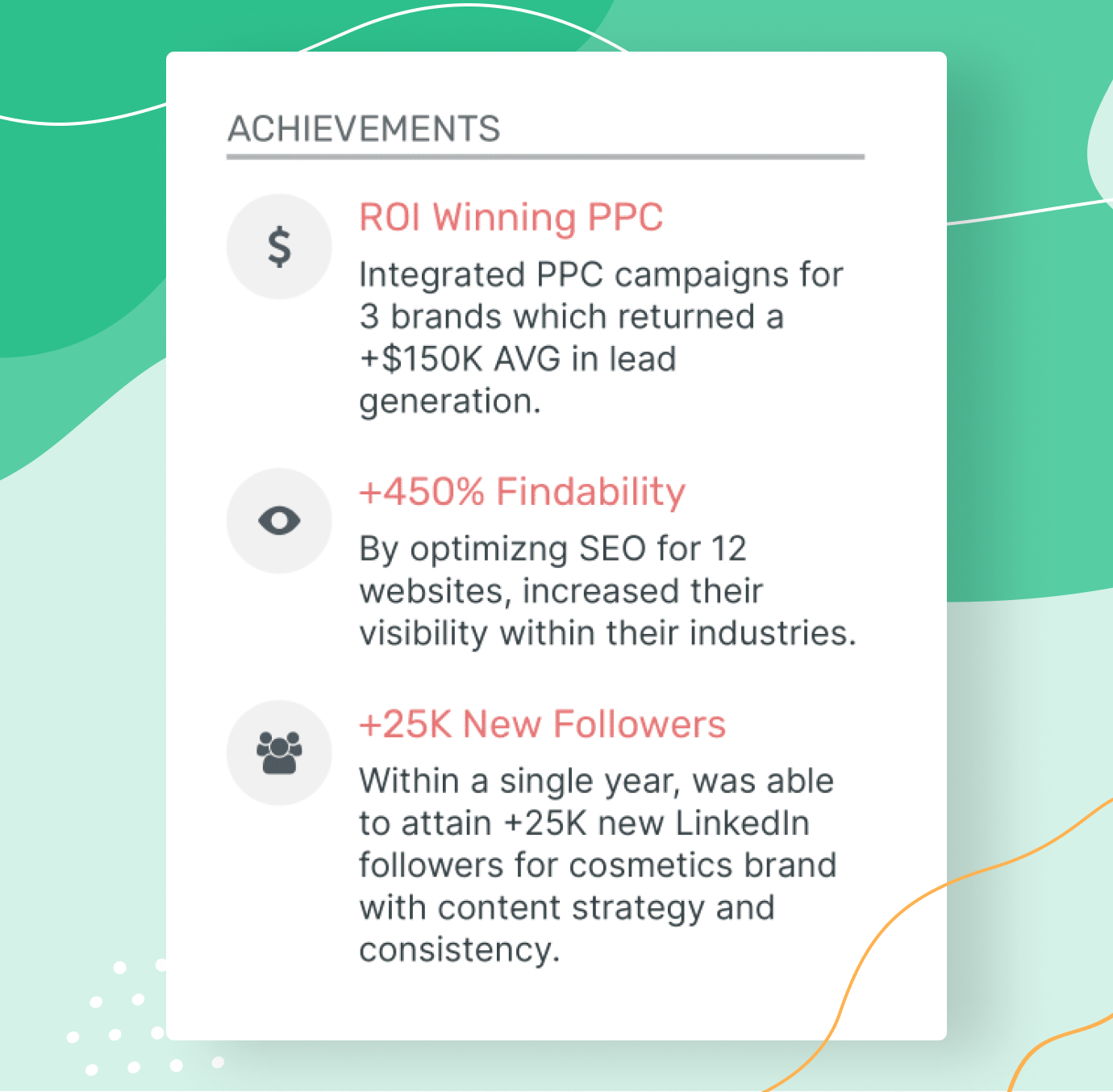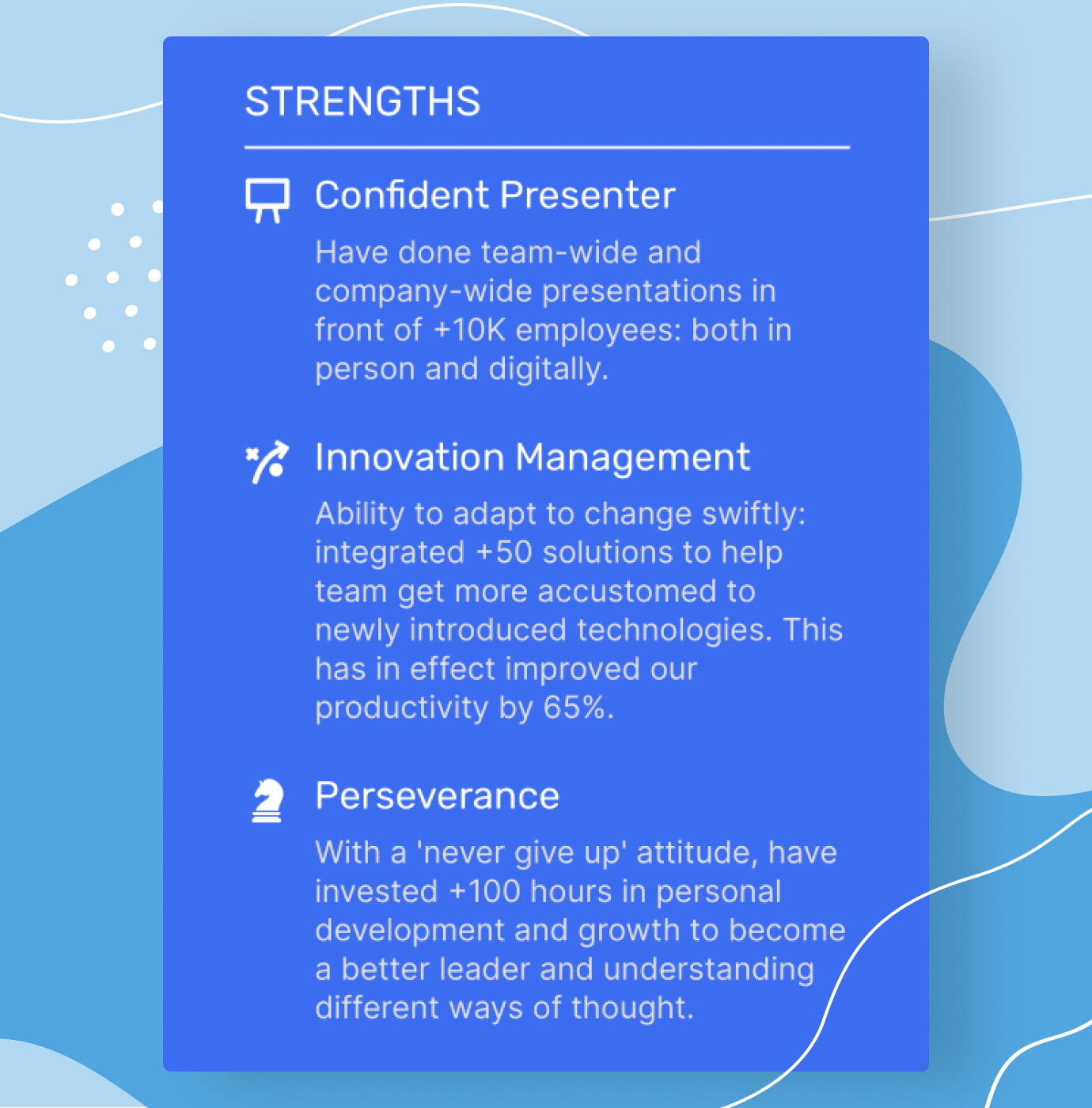Into the first weeks of 2025, "the new year, new job" resolutions are floating all around.
And why not? With the cost of living crisis, this change could be your much-needed ticket to turn the page.
Even though Q4 of 2022 ended with many layoffs by leading tech companies (FAANG/ MAANG included), recruitment freezes, and ever-evolving hiring requirements, there is still some good news out there.
Over 2022, the US economy added 4.5 m jobs, marking its second-strongest year on record.
On this train of thought, let's get you ready for your new role.
First, have you considered what employers are looking for in the ideal candidate?
Specifically, what is the holy grail of hard and soft skills for your resume in 2025?
Get ready to find out:
- Some of the top nine skills on recruiters' agenda in 2023;
- Technical skills for five cutting-edge industries;
- How to include technical skills through various sections of your 2023 resume;
- Soft skills: redefining the workforce through the year;
- The perfect formula for 2023 resume soft skills.
Do you have the right skills on your resume? Use our resume checker and get your resume score!
Drop your resume here or choose a file. PDF & DOCX only. Max 2MB file size.
Nine technical most wanted skills for 2024
One thing became certain in the first few days of 2023 - everyone is obsessed with AI. From posting Lensa AI selfies on social to using Chat GPT for coding and copywriting (looking at you, Ryan Reynolds).
This isn't set to be yet another "Wednesday Addams TikTok dance” but is already affecting the way organizations work, think, and recruit.
Apart from automation, digital and various other technical (or hard skills) are set to be included on every recruiter's checklist.
Want to take a peek at what those technologies will be?
At Enhancv, we've prepared for you the top nine skills that are on employers' 2023 wish lists.
1. Artificial Intelligence and Machine Learning (AI and ML)
We've already hinted that this will be one of the key skills for 2023, so why not continue on? Over the past three years, AI has literally been changing the way we live, applied in
- medicine to diagnose
- transportation in autonomous mobility
- manufacturing to increase production
- business for better decision-making.
Eight key AI and ML skills to include on your resume:
- Coding and programming languages
- ML algorithms and libraries
- Automation
- Distributed Computing Efficiency
- Unix Tools
- Advanced Signal Processing Techniques
- Artificial Neural Networks
- Applying AI and ML to Data-Driven Models
Pro tip
Quantify your achievements using AI and ML with a dedicated projects section, detailing the specifics of how you used the technologies to achieve autonomous ecosystems, products, etc.
2. Cloud computing
The past two years have completely altered the way we work, with remote and hybrid becoming the new normal. This would mean that more and more organizations have become reliant on cloud technology for knowledge and data sharing.
Six cloud skills for your 2025 resume
- AWS
- Azure
- Google Cloud
- Cloud Architecture
- Cloud Implementation
- Cloud Security
Pro tip
Recruiters want to discover to what extent are you actually apt at integrating Cloud solutions. Include videos of your own test labs within your project portfolio to showcase the solutions you've implemented.
3. Data literacy
Data is the new oil.
Clive Humbly OBE, British mathematician, and Tesco marketing mastermind
Marketing and Sales. Finance and Accounting. Human Resources.
What's the common element between these diverse fields? It's that they are all data-reliant.
Truth is that, nowadays, there's not a single industry that doesn't use data for
- decision-making
- insights and knowledge into processes
- rising employee productivity and motivation
- increasing ROI.
Candidates who can understand, analyze, and use data to argue their actions or decisions will surely make a good impression.
Pro tip
Don’t just say that you’re “data literate” on your resume. Instead, curate your experience section to highlight your data-driven decision-making and its impact on the organization.
4. Linux
Did you know that 96.3% of the world’s top one million servers run on Linux?
Linux has turned into a core technical skill that could be applied to all environments (e.g. cybersecurity, network administration, etc.)
So either make sure you’ve brushed up on your Linux knowledge or that you’ve practical experience in administering this operating system.
Pro tip
As we all know, Linux runs the world. Highlight some of your greatest admin/ engineering experience with Linux in the summary of your resume (e.g. with a focus on how your knowledge has helped the organizations’ systems become more efficient).
5. Programming
Programming languages are basically the A and Ω of any and all-IT related jobs, whether in engineering, development, cybersecurity, or administration.
You name it and there's probably a code hidden, which you'd have to work with. Hence, your experience in designing and coding programs; maintaining and debugging systems will be an ultimate asset to organizations.
13 Programming languages for your resume
- Python
- Golang
- Rust
- C/ C++
- SQL /MySQL
- R
- MATLAB
- Java
- GO
- PHP
- HTML /CSS
- Hadoop
- .Net
Pro tip
If you know more than two programming languages, target your resume to the job you're applying for by focusing on the most relevant ones.
If there are "optional/ bonus" languages listed within the requirements – dedicate some space on your resume to really stand out.
6. Networking
With the rise of the Internet of Things (IoT), organizations (and individuals) are becoming ever more reliant on networks.
This would require candidates' specific knowledge and expertise in establishing, maintaining, and ensuring the safety of distributed, interconnected networks.
Don't forget to list these 12 networking tools
- IP Addresses
- Port Numbers
- Network protocols (e.g. TCP/UCP, HTTP, ICMP, DNS, and SMTP)
- Firewalls (IDS/IPS/WAF)
- Proxy
- DNS
- Load Balancers
- Network/Endpoint/Extended Detection and Response (NDR/EDR/XDR)
- Network Access Control (NAC)
- Secure Access Service Edge (SASE)
- Linux
- Windows
7. Virtualization
Speaking of interconnected environments, virtualization is set to continue to be one of the key technical skills for experts through 2025.
As employers are continuing to settle into the hybrid work model, qualified professionals will be needed to virtualize some key systems.
Pro tip
Make sure to quantify your experience with setting up and maintaining virtual machines (VMs), via Docker containers or Kubernetes.
8. Social media
Despite the recent Facebook/ Meta, and Twitter job cuts, social media isn't going anywhere. As with all previous skills, digital is integrated within all 2025 personal and brand identities.
While back in the day, social was used to share funny cat memes, now it has become a powerful (and may we say successful) tool in
- engaging with cold leads
- customer support
- communicating with target audiences
- recruitment, and hiring.
Ultimately, professionals who know how to plan and strategize; understand and adapt to trends are set to impact organizations' profit margins.
Pro tip
Have you led a creative social media campaign? Detail your role within the project, with a focus on platform and technologies; strategy and challenges; outcomes, and brand growth.
9. Product management
Many businesses and organizations are set to present their services or products to new markets, leads, or environments through 2025.
That's why product management would become one of the essential skills for the new year.
Apt managers think on their feet in planning and developing unique product launch strategies. What is more, they focus on maintaining the full customer journey and experience. This would include answering incoming concerns and possibly adapting to circumstances.
Apart from technical details, product management would require a substantial amount of personal, organizational, and analytical skills. You'll find out more about why soft skills are making a HUGE comeback in 2023 towards the end of this article.
Five cutting-edge industries set to leave their mark on the 2023 job market
Within the next part of our blog, we’ll look at some trends and insights from key industries, set to shape the job market through the year.
We’ll also provide you with a checklist of the key skills, that are important, for different roles within the fields.
Finally, if you’re still wondering how to integrate your technical skills within your resume, look no further. We’ll show you how with some real-life examples.
Let’s get started once again with…
Artificial Intelligence and Machine Learning (AI and ML)
You may have noticed some sort of trend in this article, but there’s no surprise there. According to research, the AI intelligence market is predicted to have an annual compound growth rate of 38.1% by 20230.
This means that in seven years’ time, the industry is expected to reach a $1,597.1 billion estimate! Now that's one industry on the rise.
There are plenty of opportunities in AI and ML for skilled professionals. There’s only one final pit stop to getting that dream job - it’s to complete your resume.
Here are the key AI and ML technical skills on the recruiters’ agenda.
AI and ML technical skills
- Artificial Intelligence
- Machine Learning
- Deep Learning
- Data Wrangling (processing and analyzing data)
- ChatGPT
- APIs
- IOT
- Programming Languages (see the full list above)
- Linux
- Virtualization (VMs, Docker, Kubernetes)
- AI Cloud Computing
Through your resume, you’ve various opportunities to showcase your AI and ML skills. This guide will focus on five key resume sections that could work perfectly for you.
AI and ML skills in the header of your resume
This candidate’s header works perfectly as it not only includes his full contact information and a portfolio link but has a unique headline that:
- defines a key industry problem,
- integrates skills as keywords,
- and delivers actual outcomes.
AI and ML skills in the summary of your resume
Within the resume summary, you’d find various skills keywords, that are pertinent to the field, all linked with actual outcomes. E.g.:
- Automation to improve databases;
- ML solutions integrated to increase organizations’ abilities to analyze data;
- ML models, Dockers, and cloud-based environment to organize data.
AI and ML Skills in the Experience of Your Resume
As listed, each experience item focuses on a technical skill and at the same time delivers an achievement of working with the specific technology.
Remember that the experience section is a numbers game: always find how to curate your actual role outcomes via “quantity” achieved.
AI and ML skills in the projects section of your resume
The projects section of your resume could once more be used to shine a light on key projects or technologies which you’ve used in the past.
Just remember to always make this relevant to the job you’re applying for to highlight your knowledge and expertise.
AI and ML skills in the achievements of your resume
The achievements section can help you once more focus on the technologies you’ve used with actual outcomes. Consider what you’re most proud of and feature it within this section.
Cybersecurity
As predicted by Gartner, the cybersecurity market is set to reach $188.30bn by 2024. That's over twice the size of the market compared to 2016 ($82.23bn).
This is one industry that's set to become a crucial part of all organizations worldwide, as the risk of data breaches is on the rise.
Professionals, who know how to design, implement, and protect distributed, interconnected networks, will have plenty of opportunities through 2023.
So don't forget to list some of these +30 cybersecurity skills on your resume:
30+ Cybersecurity Technical Skills
- Public and Hybrid Cloud Platforms (e.g. Azure, AWS, GCP)
- Kubernetes
- Docker DevOps Assets
- Identity and Access Management (IAM) (e.g. Multi-Factor Authentication, Passwordless Authentication, Privileged Access Management, Single Sign-On)
- Application Security
- Standard Penetration Testing Tools (e.g. Nessus, Metasploit, SQLMap, Jawfish)
- Risk Assessment and Management
- Security Incident and Event Monitoring (SIEM) (e.g. Splunk)
- Digital Forensics and Incident Response (DFIR)
- Forensics Software (e.g. EnCase, Helix, XRY, FTK)
- Programming and Database Languages
- Data Security Regulations (e.g. General Data Protection Regulation (GDPR), PCI, HIPAA, NIST, CPRA, Sarbane-Oxley, FIPS)
- Databases: Configure, Run, and Maintain
- Identifying Security Issues
- APIs
- Secure Network Architecture
- TCP/UCP
- HTTP
- ICMP
- DNS
- SMTP
- Firewalls (IDS/IPS/WAF)
- Proxy
- DNS
- Load Balancers
- Network/Endpoint/Extended Detection and Response (NDR/EDR/XDR)
- Network Access Control (NAC)
- Access Service Edge (SASE)
- Zero-Trust Architecture and Least Privilege
- IoT Security
- Operating Systems (Linux/ Kali Linux, Windows/ Windows Active Directory)
- Kerberos Cybersecurity Protocol: Cryptography
Let’s have a look at how you could integrate your cybersecurity skills through various sections of your resume.
Cybersecurity skills in the header of your resume
A good idea for your headline could be to focus on breaking away from common industry perceptions while integrating buzzwords.
Always remember to list your full contact details with a professional portfolio that could include your test labs.
Cybersecurity skills in the summary of your resume
Use this short, sweet, and to-the-point summary to make sure your resume summary really stands out. Include technologies, outcomes, and the unique value of working with you to prove your expertise.
Cybersecurity skills in the experience of your resume
This experience section is the perfect example of how you could highlight some of your key achievements using cybersecurity technologies.
One key thing recruiters will be looking out for is how practical your experience would be for the role. That’s why you should include only your most contemporary technical experience.
As we all know, there are no more security updates for Windows 8.1 - and thus your experience would be no longer valid.
Cybersecurity skills in the projects section of your resume
Consider the big picture of things (and the business) and how your projects have improved it for everyone.
Cybersecurity Skills in the Achievements of Your Resume
A cool trick to writing your achievements section is to first assess the job requirements and focus on three key technologies which are indispensable to the role’s success.
Data science and analytics
The US Bureau of Labor Statistics has predicted that until 2031, an average of 13.5K job openings are expected to appear for data scientists.
Data goes to show that in the next eight years, the data science sector will grow much faster than the rest with a 36% increase.
This is fantastic news for professionals with some of the following technical skills:
Data science and analytics technologies
- Mathematics
- Probability
- Statistics
- Strong Programming Knowledge
- Big Data (e.g. Hadoop, Spark)
- Visualization and Data Analysis (e.g. Power BI, Tableau)
- Redshift
- Snowflake DB
- Oracle
As promised, within the next section of this article, discover how to include these skills within your Data Science or Analytics Resume.
Data Science and Analytics Skills in the Header of Your Resume
If you’ve invested more time in developing and growing your LinkedIn profile, make sure to showcase it in your resume header.
And regarding that tricky headline, use it to quickly (and briefly) answer these five key questions:
- Who? Your current role or position;
- What? Main role responsibility;
- Where? Relevant field or industry;
- Why? The outcome of your work.
Data Science and Analytics Skills in the Summary of Your Resume
Use the summary to once again highlight:
- Your role and the industry you excel in;
- Key achievement through your career;
- Technical knowledge and the benefits it brings to the organization.
Data science and analytics skills in the experience of your resume
With technical roles, curate each experience item according to the job requirements, where you list briefly:
- What you did;
- The technology you used;
- The actual outcomes of the task.
Data Science and Analytics Skills in the Projects of Your Resume
Within the projects section of your data science or analytics resume, always make sure to give the spotlight to cutting-edge technology and your greatest achievements.
You could also use it as an opportunity to hint to recruiters about what projects you’d like to work on in the future, in comparison with your previous experience.
Data science and analytics skills in the achievements of your resume
In this section, choose previous successes which really help you stand apart from other candidates and can explain what you can actually do within your job.
Engineer
Within this section, we’ve decided to make no exceptions. The 2025 job market with create plenty of opportunities for software, mechanical, and electrical engineers.
Our digital economy is highly dependent on software development, which is expected to reach new peaks in the next decade or so. Continuing to turn qualified software engineers into a popular career path for many.
Manufacturing is slowly starting to recover after the COVID-19 pandemic, which means that mechanical and electrical engineers with expertise in the field will be very much needed.
So, without going into any further detail, here are the 20+ technical skills to include on your engineering resume.
20+ engineering technical skills
- Engineering and Mechanical Concepts
- Software Skills
- Math skills
- Semiconductors / VLSI design
- Digital and analog circuits
- Chip Design
- Design Methodology
- Design Flow
- Hardware Description Language
- Embedded Systems
- Memory regions
- Peripherals
- Microcontrollers
- Software Development
- Visualization
- Coding Languages
- AutoCAD
- Design Process
- Prototypes
- Testing and Refining
- Automation
- Mobile App Development
- UI/UX Design
- DevOps
- Blockchain Development
- Web Development
- Low- and No-Code Development
- SCRUM
- JIRA
Engineer skills in the header of your resume
The headline here includes various skills and keywords with the #1 outcome of this professional’s expertise.
Remember, wherever relevant, it’s good to include that you have a Ph.D. degree, next to your name. This shows that you have the grit to pursue your higher education.
Engineer Skills in the Summary of Your Resume
Embedding technical keywords within your summary is definitely the way to go. As a rule of thumb, always consider the technology behind your greatest success.
engineer skills in the experience of your resume
When listing your experience item, always make sure to include all relevant information and the end result.
If you don’t happen to have enough practical experience, opt out for a more-functional-based resume format. One that also details various other experiences you may have had that include
- Higher education research and publications;
- Projects and volunteering;
- Personal projects and courses you’ve excelled in.
Engineer Skills in the Projects of Your Resume
Try to include as many technological and relevant details within the projects to help recruiters better understand what your role was.
Remember that your resume may be read by both technical (and consequently not so-technical recruiters), so use simple language to explain the technologies you’ve used.
Engineer Skills in the Achievements of Your Resume
Be as specific as possible when describing your achievements, and chose ones that are actually noteworthy.
So, if you have created 20 documents in MS Word vs. Cutting-edge technical diagrams with AutoCAD, you know which skills you should be focusing on in this resume section.
Marketing
Lucky marketing professionals, your field will continue to be one of the most prominent industries through 2025.
Automation, collaboration (with sales, influencers, etc.), and video content are set to continue to define the way we experience brands. Both virtually and in real life.
Make sure you've brushed up on some of these key marketing skills to land your next dream role.
Marketing technical skills for your 2025 resume
- Video Production and Editing
- Photography and Editing
- Meme Making
- Content Creation
- Email Marketing
- Coding 101
- Storytelling
- Automation
- Copywriting
- SEO/ PPC/ SEM
- AI
- Social Media Management
- Digital Marketing
- Mobile Marketing
- Influencer Marketing
- Graphic Design
- CRM (e.g. Salesforce, Trello)
And here’s how to include your marketing skills through your resume.
Marketing skills in the header of your resume
This headline helps position this marketing expert with skills, knowledge, and the main outcome of their role. As well, the “B2C brands” also provide more depth into the industry of their choice.
The personal element is included as a good conversation point with recruiters during the interview.
Marketing skills in the summary of your resume
This marketing videographer has focused their resume on
- Niche of expertise and channels
- Technologies used
- Personal projects.
Marketing skills in the experience of your resume
Follow the good old formula for each bullet: “action + technology + achievement”.
Remember to select the most relevant and impressive technologies within the industry: this will really set you apart from other candidates.
Marketing skills in the projects of your resume
The projects section could be used to highlight collaborations, personal marketing projects, or your university work.
Just make sure it’s relevant to the job you’re applying for.
Marketing skills in the achievements of your resume
Within marketing, your achievements probably hint that you’re a jack of all trades. Before you complete your resume, consider what types of projects you’d like to work on in the future.
Then, use your achievements section to note similar ones you’ve had experience in. You’ll thank us later.
How important will soft skills be in 2025?
So far, we've been talking much about the tools, technologies, and industries that will leave their mark on the 2023 job market.
But let's consider one different scenario.
Have you ever been interviewed for a job, for which you seemed perfect on paper…
… and then a couple of weeks later, you get rejected because even though you have the technical knowledge, you weren't a "good match" for the company culture.
We've all been there. Done that.
This scenario reveals a hidden trend that will continue to affect your job prospects through 2023.
And that's right: recruiters will continue to care about your soft skills.
Or those personal traits which you've gained via both real life and work experience.
Your soft skills hint to recruiters:
- Who you are and how your train of thought could possibly progress;
- How do you react and what's your emotional intelligence like;
- Values and priorities within the way you structure your work;
- What else you'd bring to the role: your unique value as a person and as a professional.
A Gartner study on the future of work has found some alarming insights on the topic of soft skills.
The study goes to show that 51% of the new workforce entering the market (Gen Z) reveals that their at-home education has not prepared them for the job.
It's not just Gen-Z.
Due to the pandemic and COVID-19 restrictions, virtual communication has damaged the way we
- communicate and network
- present in front of crowds
- act within an in-person environment.
We've all suffered from the aftereffects of severe burnout and career insecurities, which are strengthened by the cost of living crisis.
Look on the flip side. Those who have been able to sustain and harbor their soft skills will certainly stand out to recruiters.
Having those personal abilities up your sleeves will definitely result in your winning hand in the 2023 job market.
Discover a full list of what some of the most-wanted resume soft skills will be through the year.
2025 soft skills to catch recruiters’ eye
- Adaptability
- Creativity
- Collaboration
- Self-motivation
- Problem-solving
- Communication
- Time management
- Digital Literacy
- Innovation Management
- Leadership
- Management
- Organization
- Resourcefulness
- Perseverance
- Self-sufficient
- Verbal Communication
- Positive Thinking
- Listening
- Critical Thinking
- Building Effective Relationships
- Remote Communication & Collaboration
- Critical Analysis
- Self-Management
- Active Learning and Development
- Curiosity
- Learning Agility
- Growth Mindset
- Self-Resilient
- Grit To Pursue Your Dreams
- Flexibility
- Innovation
- Positive Attitude
- Agile Project Management
- Negotiation
- Networking
- Speaking Confidentially In front Of A Crowd
- Stamina
- Attentiveness
- Ability To Work In A Hybrid Work Environment
Want to make the most out of your resume soft skills?
Curate those through various resume sections - just like you’d with technologies.
If you’d like, you can go a step further and create a “strengths” section to detail your key soft skills and highlight how you’ve applied those within the workplace.
Here’s a strengths section, as curated by our experts:
Key takeaways
- Technical and soft skills will play a crucial role in recruitment, where both could have equal weights within the decision-making process;
- Make the most out of the limited space you have on your resume by highlighting your capabilities through various sections by using the "skill+ activity + outcome" formula;
- 2023 is shaping up to be an exciting year for professionals, looking to grow their careers in AI & ML, Cybersecurity, Computing, Engineering, and Marketing;
- Technical skills within nine key fields will be on all recruiters' radars, while potential employers and CEOs will have multiple soft skills on their checklists;
- Always tailor your resume to the job you're applying for, with a focus on the skill requirements and your capability of using the above-mentioned technical or soft skill.
Make one that's truly you.





